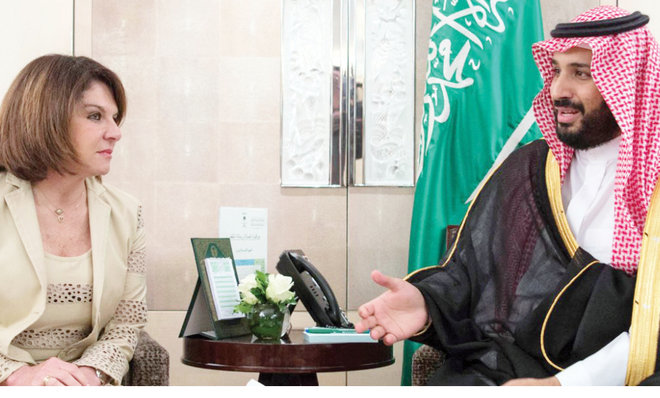
Deputy crown prince’s Paris visit finds favor with world experts
After King Salman ascended the throne, relations with France have taken center stage in the Kingdom’s foreign policy. The ties got the added fillip following Deputy Crown Prince Mohammed bin Salman’s current visit to Paris, beginning Sunday.
Jean Pierre Moline, an expert in defense policy for France and Europe, said security cooperation between the two countries is deep-rooted and could be further enhanced through the visit of Prince Mohammed where he is expected to sign several agreements.
Moline called the Kingdom as a strategic ally of France, saying the two countries have similar positions on many regional and global issues.
The deputy crown prince’s visit comes at a time when dramatic changes are taking place in the world, said the Kingdom’s Ambassador to France Khalid Al-Anqari.
The ambassador said the visit aims to strengthen historic relations between the two countries.
These relations are characterized by close viewpoints, which confirm the central role of France in the region and its work with the Kingdom to find solutions for regional crises.
Prince Mohammed’s visit comes under the umbrella of the Kingdom’s openness to the world and investing in projects that contribute to diversifying the fabric of the Saudi economy, as well as creating job opportunities.
Economic security expert Olivier Combe observes that Saudi Arabia was able to move toward diversifying its economic future at the opportune time when many economies face challenges after the decrease in the price of oil.
He said Vision 2030 is a youthful vision that responds to the aspirations of the new generation and keeps up with global economic changes. He confirmed that this transformation has within its folds a deep understanding of international relations and joint strategies that have economic and investment priorities.
Expert in Franco-Arab relations Kareem Beitar said the prince drew attention of his country’s most important partners, such as US and France; he brings viewpoints closer together in light of the new domestic transformation which is based on an economic transformation that invests in human beings first, and the country’s potential away from oil.
Expert in economic intelligentsia Erik Dalbak said the prince realized the need to change the economic mentality and knew that education is of major importance to Vision 2030 because it will prepare people who can manage major corporations and which the Saudi leadership will depend on to manage leading positions in commercial businesses.
He said the independent competitive sector doesn’t depend on the state, but it is a strong establishment that is long on experience and guarantees economic and political consequences, as it opens the door for global partners to cooperate, and in the formation process, invests in sectors that have weak performances.


























